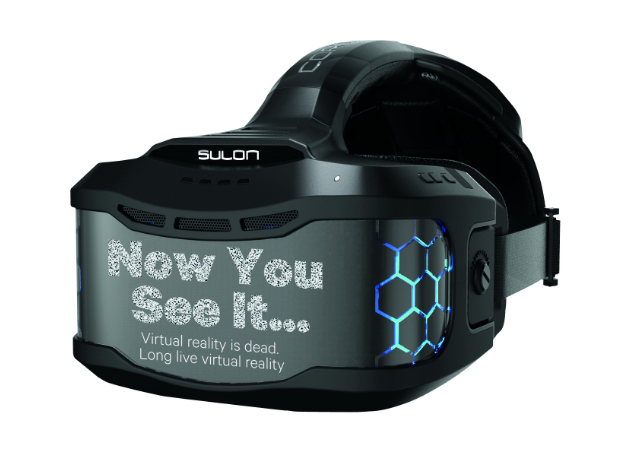Virtual Reality Is Dead. Long Live Virtual Reality.
Virtual reality made some lofty promises when it had its first boom in the ’90s. Put on these goggles, escape the mundane, start anew on Middle-Earth. But the headsets were clunky, the graphics choppy, the experience stomach-churning. The boom fizzled.
So it seems curious that virtual reality is going mainstream once again. And fast. All the leading tech giants are in a race to colonize your sensory perception. Facebook famously bought VR trailblazer Oculus Rift last year for $2-billion. Google recently hired a fleet of engineers to build an Android-based operating system for VR programs. Samsung, Sony, Microsoft and HTC are all readying their respective headsets. Apple, while characteristically silent, obtained a patent for an iPhone-compatible VR gizmo earlier this year.
We can safely conclude that VR is the next, next big thing. Did we learn nothing the last time we tried sliding dumb plastic shells on our heads?
“It’s because technology has caught up to the dream of VR,” says Dhan Balachandreswaran, CEO of Toronto-based VR start-up Sulon, the most promising Canadian player in the VR game. He’s got a point: the game engines are more lifelike, the environments more immersive, the 360-degree panoramas less nauseating. “Besides, would you not want to live a Lord of the Rings moment?”
Sulon believes their Cortex headset — hitting the market later in the year — will give Zuckerberg’s Oculus Rift a run for its very real money. The Cortex stands apart from the pack by melding the real and virtual worlds. Using a 360-degree spatial scanner, it senses your physical environment and builds a game or movie into it. Kind of like Star Trek’s holodeck, but for your face.
It all sounds cool, if you’re into that sort of thing. Which, ultimately, is the issue with VR: it’s hard to imagine it really taking off with anyone beyond the Dungeons & Dragons, or early-early adopter set. The most successful tech gadgets in recent years have enabled social interaction in new ways. But there’s something inherently anti-social about slipping into an alternate reality.
Maybe the right answer isn’t virtual escapism, but something closer to what Sulon is doing: bringing cyber-enhancement to the real world. Balachandreswaran believes VR’s greatest potential lies in its practical uses. Firemen in training will be able to live the GoPro footage of being in the midst on an inferno, rather than just reading about it. Realtors will get to walk buyers through their unbuilt homes and furnish them to their liking. Why suffer a 12-hour flight when you can meet your foreign client in a virtual conference room?
“You’ll even get to choose your setting: let’s have our meeting in Hawaii, man,” says Balachandreswaran. “What’s about to happen is going to be pretty crazy. You’re going to mind-shit yourselves.”










